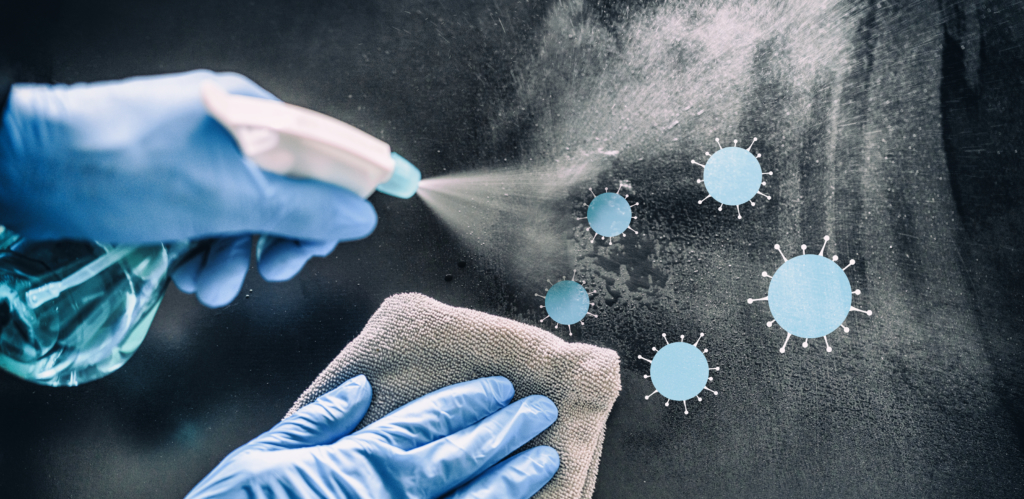During a recent doctor deposition, a well-renowned internist and pulmonologist told me that he was skeptical about whether Covid-19 could be transmitted by touching a surface that was previously touched by a sick person.
He referred to multiple studies calling that theory of transmission into question, including a CDC study found on the agency’s website. The study is notable for the fact that it estimates the odds of fomite transmission (touching of contaminated surfaces or objects) is 1 in 10,000.
Findings of these studies suggest that the risk of SARS-CoV-2 infection via the fomite transmission route is low, and generally less than 1 in 10,000, which means that each contact with a contaminated surface has less than a 1 in 10,000 chance of causing an infection.
https://www.cdc.gov/coronavirus/2019-ncov/more/science-and-research/surface-transmission.html
If you’re a sucker like me who spent the first few months of the pandemic wiping down groceries with Lysol in a paranoid attempt to protect family members from the virus, your worst suspicions are confirmed – you wasted hours disinfecting things that didn’t need to be disinfected.
What is interesting is that the doctor’s reasons for the skepticism of fomite transmission are as follows:
- If Covid-19 droplets are placed on a surface inside your home, then those droplets are essentially moisture. Moisture can quickly dry out. Those droplets will not stay wet forever.
- The studies that initially found higher risk of fomite transmission did not account for environmental factors, such as wind and ventilation.
- The studies that initially found higher risk of fomite transmission also used viral RNA detection methods that were incredibly oversensitive, as in they could detect a single piece of RNA. Well a fractional piece of an RNA molecule is not sufficient to start an infection. Even if one finds a few viral RNA molecules, those may not be sufficient to start an infection. The CDC refers to this term as “viral load in respiratory droplets.”
In summary, the wearing of masks is a far more efficient way of stopping the spread of infectious respiratory droplets, as opposed to disinfecting surfaces.
So while having clean surfaces is still a good thing, that CDC study explains why you don’t have to use strong antibacterials on your groceries anymore.
See More:
- Covid-19 Sick Pay Could Be Back Sooner Than You Think
- Valley Fever on the Rise, but Masks Could Help
Got a question about workers’ compensation defense issues involving the coronavirus? Feel free to contact Bradford and Barthel’s Covid Response Team at covid@bradfordbarthel.com. John P. Kamin, the author of this article, is a member of the team. Mr. Kamin is a workers’ compensation defense attorney and partner at Bradford & Barthel’s Woodland Hills location, where he monitors the recent legislative affairs as the firm’s Director of the Editorial Board. Mr. Kamin previously worked as a journalist for WorkCompCentral, where he reported on work-related injuries in all 50 states. Please feel free to contact John at jkamin@bradfordbarthel.com or at (818) 654-0411.
Viewing this website does not form an attorney/client relationship between you and Bradford & Barthel, LLP or any of its attorneys. This website is for informational purposes only and does not contain legal advice. Please do not act or refrain from acting based on anything you read on this site. This document is not a substitute for legal advice and may not address every factual scenario. If you have a legal question, we encourage you to contact your favorite Bradford & Barthel, LLP attorney to discuss the legal issues applicable to your unique case. No website is entirely secure, so please be cautious with information provided through the contact form or email. Do not assume confidentiality exists in anything you send through this website or email, until an attorney/client relationship is formed.


